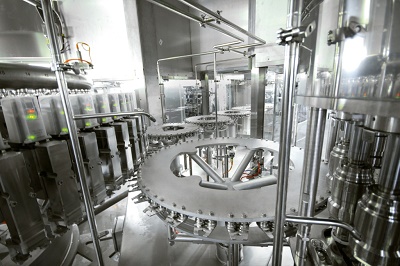Sidel, a leading provider of PET solutions for liquid packaging, is supplying for the first time in the UAE its Sidel Matrix Combi system to Dubai Crystal Mineral Water and Refreshments LLC. The Sidel Matrix Combi, based on the most cost-effective technology of the latest generation of Sidel Matrix systems, will contribute to delivering high level performance and production safety, along with reduced costs and a low environmental footprint.
Dubai Crystal Mineral Water and Refreshments is a HACCP and ISO certified company involved in multi-faceted activities with manufacturing and distribution facilities in Iran and UAE for the Crystal and Hatta Mineral Water brands. With the Sidel Matrix Combi, the Emirati bottler will be able to produce PET water bottles in 330ml and 500ml formats at a speed of 22,500 bottles per hour (bph) and 1.5l format at a speed of 16,000bph.
Along with the Sidel Matrix Combi system, Dubai Crystal Mineral Water and Refreshments will integrate Sidel’s recently launched Sidel StarLite base packaging technology which gives added durability, stability, and overall resistance to the PET bottles. It offers a more energy efficient method of production, allowing producers to achieve significant savings on energy and the amount of PET used in the overall production process.

The Sidel Matrix Combi system integrates the blow-fill-cap function in one single enclosure, with neck-handling and positive transfer of bottles, which avoids limitations imposed by air conveyors. It brings together all the benefits of blowing and filling innovations in an integrated solution which delivers outstanding energy efficiency while simultaneously cutting costs. The machine offers savings in raw materials with light or ultra-lightweight bottles, as well as reduced consumption of air, water, chemicals and energy.
The beverage sector is expected to continue growing in the UAE across various categories. In 2014, the consumption of water, the most consumed beverage item, stood at around 1.05 billion litres and is due to grow by a compound annual growth rate (CAGR) of 6.5 per cent over the next four years to reach 1.35 billion litres by 2018.














